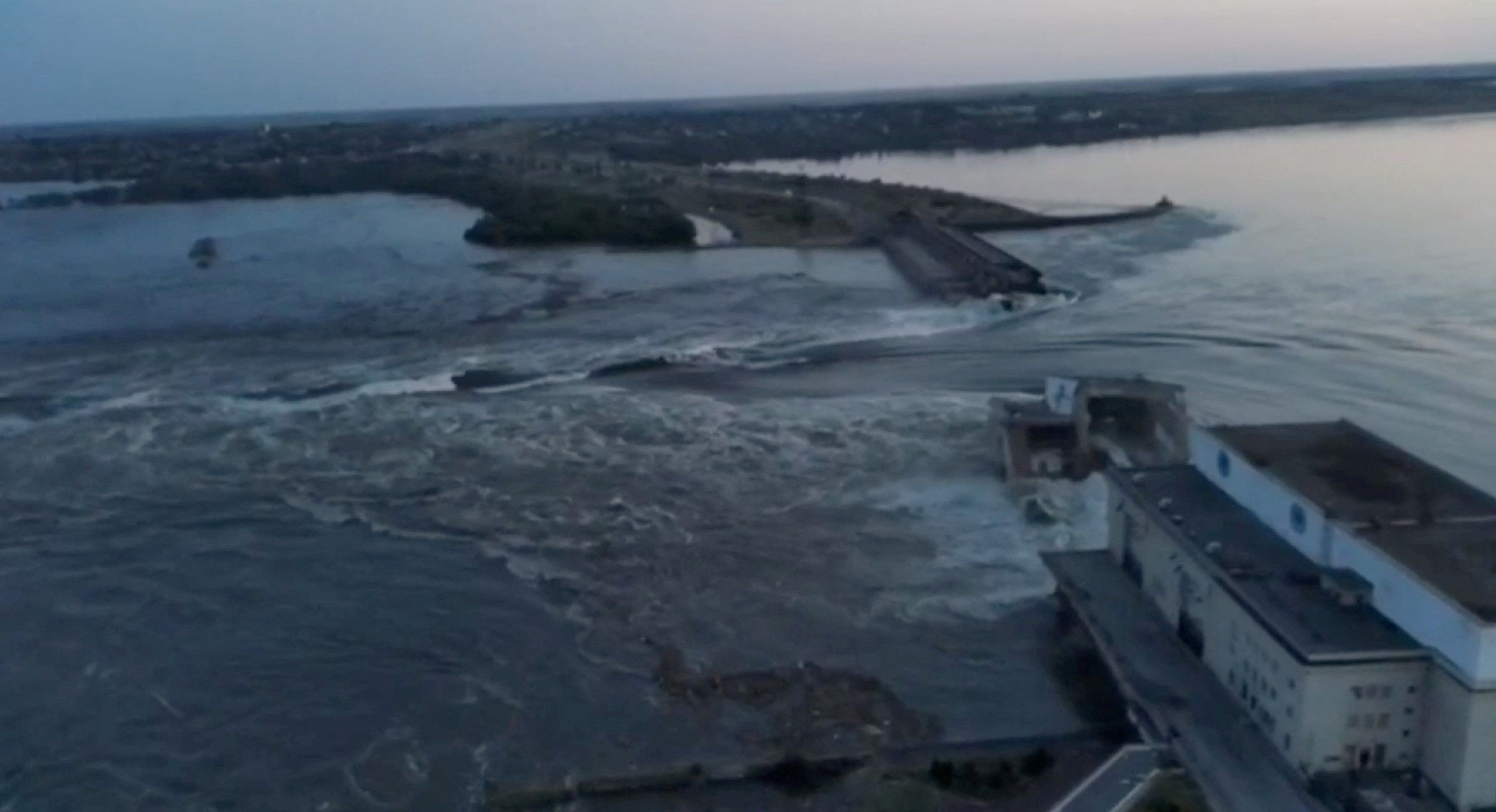A major dam in the Russian-controlled region of Nova Kakhovka in southeast Ukraine suffered a massive breach Tuesday, putting at least 16,000 people at risk of severe flooding on the Ukrainian west bank of the Dnipro River. Kyiv blamed Russian shelling for the dam breach, but the Kremlin, unsurprisingly, said it was the Ukrainians.
This is a big deal. The barrier that was hit maintains a crucial reservoir that supplies drinking water and water for Ukraine’s robust agriculture sector. Crucially, the body of water now flooding the region is also drawn from to cool the Zaporizhzhia Nuclear Power Plant, the largest in Europe.
The UN’s nuclear watchdog said that lack of cooling water at Zaporizhzhia could frustrate the emergency diesel generators set up to prevent Ukraine from descending into darkness, though the group said that, at least for now, the situation appears to be under control at the plant.
Evacuations of residents in Ukrainian-held territory impacted by the floods have begun, but as water continues to gush, it could be a race against the clock.
